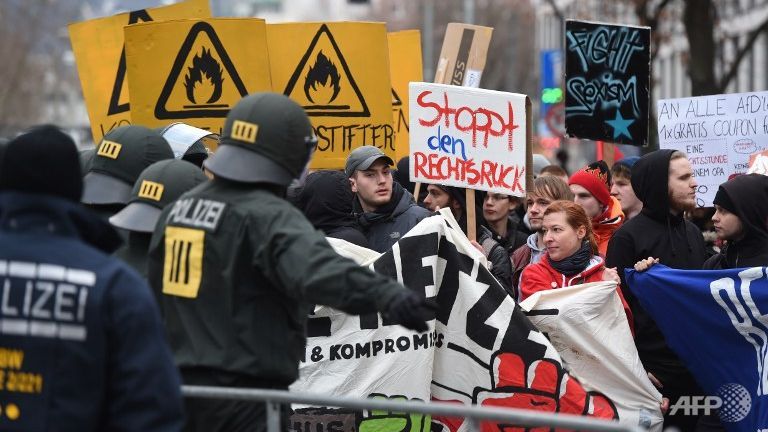-
Tips for becoming a good boxer - November 6, 2020
-
7 expert tips for making your hens night a memorable one - November 6, 2020
-
5 reasons to host your Christmas party on a cruise boat - November 6, 2020
-
What to do when you’re charged with a crime - November 6, 2020
-
Should you get one or multiple dogs? Here’s all you need to know - November 3, 2020
-
A Guide: How to Build Your Very Own Magic Mirror - February 14, 2019
-
Our Top Inspirational Baseball Stars - November 24, 2018
-
Five Tech Tools That Will Help You Turn Your Blog into a Business - November 24, 2018
-
How to Indulge on Vacation without Expanding Your Waist - November 9, 2018
-
5 Strategies for Businesses to Appeal to Today’s Increasingly Mobile-Crazed Customers - November 9, 2018
Germans Punish Merkel for Migrant Policy
The AfD, which has has only been in existence for three years, moved ahead across all three regions – a clear sign that Merkel’s policy of allowing more than 1m immigrants and refugees into the country last year was no longer popular with the electorate.
Advertisement
The conservatives’ split over the migrant crisis helped center-left, refugee-friendly parties win the elections in the two former West German states that voted.
Merkel’s ruling party suffered defeats in two of the states of Baden-Wuerttemberg where it gained 27.1 percent of the votes and Rhineland Palatinate where it collected 31.8 percent.
“The key reason for the losses is refugee policy, there’s no getting round it”, Horst Seehofer, the Bavarian state prime minister, and Mrs Merkel’s bete noir over the issue, said.
The result in Rhineland-Palatinate, where its share dropped by 2.7 per cent, was particularly disappointing for the CDU after it was widely expected to seize control from the Social Democrats (SPD).
Earlier, a spokesman for the chancellor said her government would not change course.
Despite the election results, Merkel will stick to her plan to keep the doors open to migrants, according to ABC.
Around 1.1 million asylum seekers entered Germany last year, and a forecast prepared by the Cologne Institute for Economic Research has estimated that an additional 1.5 million could be welcomed into the country this year.
But Mrs Merkel can point to the Greens’ success as evidence that her refugee policy is a vote-winner – just not with her party’s traditional voters.
She reiterated her point on Thursday, insisting that imposing a limit on refugee numbers was merely a “short-term pseudo-solution”, and that the only measure that would sustainably bring numbers down was a “concerted European approach”.
The AfD’s rise, which has coincided with strong gains by other European far-right parties including the National Front in France, punctures the centrist consensus around which the mainstream parties have formed alliances in Germany.
“We have fundamental problems in Germany that led to this election result”, said Frauke Petry, the AfD leader.
Gains made in state elections by a strongly anti-immigration party are sending shockwaves through German society.
And the CDU’s leader in Saxony-Anhalt pointed the finger squarely at Merkel for his party’s losses. Almost half of all refugees in Europe are Syrian, as an ongoing violent conflict has left hundreds of thousands dead and millions of people displaced in the country.
Victory there went to governors who often sounded more enthusiastic about her migrant policy than her own candidates – whose poll ratings slid after they tried to put cautious distance between themselves and the chancellor by calling for daily refugee quotas.
Advertisement
Malu Dreyer, SPD premier in Rhineland-Palatinate, has already signaled she may form a coalition with the Greens and the pro-business Free Democrats (FDP) – traditionally a Merkel ally that has been severely weakened by the emergence of the AfD.





























